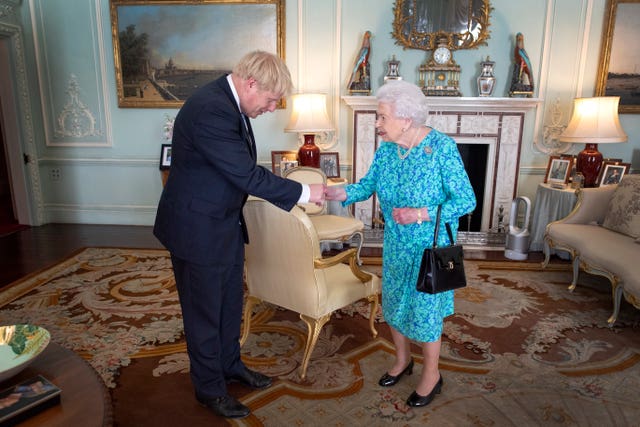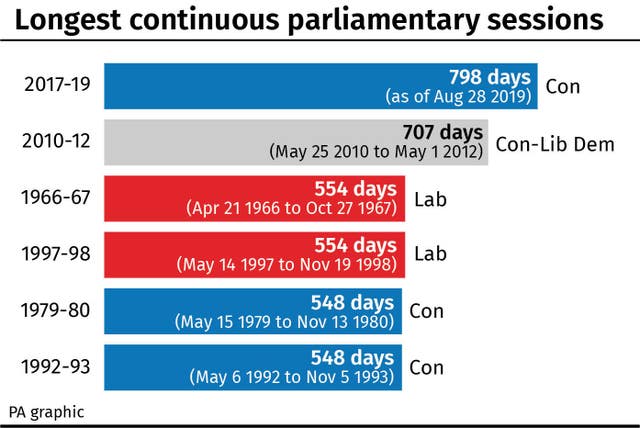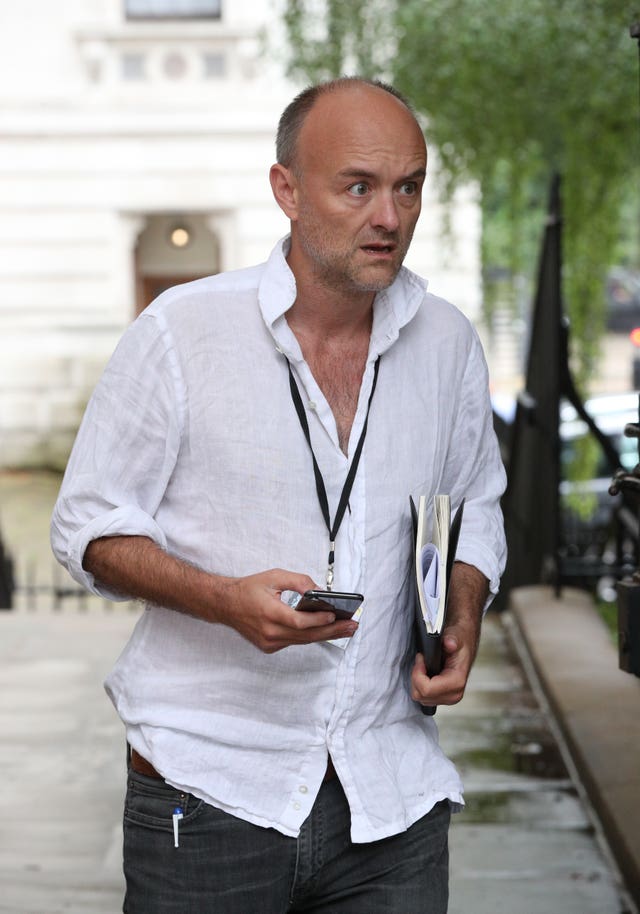Key players in unfolding political drama
The Prime Minister’s plan to suspend Parliament has been described as ‘a very British coup’.

Prime Minister Boris Johnson’s plan to hold a Queen’s Speech on October 14 has sparked an onslaught of fury as critics branded the move a “constitutional outrage”.
The controversial plan – described as “a very British coup” – will see Parliament temporarily shut down from around September 11 until the state opening on October 14.
But who are the key players in this unfolding political drama?
– The Prime Minister
Mr Johnson insists it is “completely untrue” to say Brexit was the motivation for his plan, explaining that it was time for a new session of Parliament to set out his “exciting agenda”.
In a letter to MPs, the Prime Minister said he intends to bring forward “a new, bold and ambitious domestic legislative agenda for the renewal of our country after Brexit”, adding that while there will be a “significant Brexit legislative programme to get through” there should be “no excuse for a lack of ambition”.
But Mr Johnson will not escape accusations that his decision to hold a Queen’s Speech on October 14 is designed to block MPs from considering ways to thwart his Brexit plans.
– The Queen
Mr Johnson spoke to the monarch on Wednesday morning to request an end to the current parliamentary session in the second sitting week in September – a process known as prorogation.

MPs have hit out at the position the Prime Minister has put her in, with Labour former cabinet minister Ben Bradshaw saying the move would “drag the monarch into an unprecedented constitutional crisis”.
As head of state, the Queen is politically neutral and acts on the advice of her Government in political matters.
“The referendum is a matter for the British people to decide,” Buckingham Palace said at the time of the Brexit vote in 2016.
– Jeremy Corbyn
The Labour leader said Mr Johnson’s plan to suspend Parliament was “an outrage and a threat to our democracy”.
Mr Corbyn has insisted his party will “do everything necessary” to try to halt a no-deal Brexit, calling for “an injection of democracy” so the people of the UK can decide their future.
The leader of the opposition said he is “appalled at the recklessness” of Mr Johnson’s government and said if the Prime Minister has confidence in his plans, he should put them to the people in a general election or public vote.
– John Bercow
The Commons Speaker reacted furiously to the Prime Minister’s announcement, saying it “represents a constitutional outrage”.
Mr Bercow was unequivocal in saying it is “blindingly obvious” that the purpose of prorogation would be to “stop Parliament debating Brexit and performing its duty in shaping a course for the country”.
In a searing assessment of how the Prime Minister is going about his role, Mr Bercow said that at this early stage he should surely be “seeking to establish rather than undermine his democratic credentials”.

– Dominic Cummings
Mr Johnson appointed the Vote Leave campaign mastermind to his top team at Number 10 when he became Prime Minister.
The appointment of the abrasive former campaign director was controversial given he was found to be in contempt of Parliament earlier this year for refusing to give evidence to MPs investigating misinformation.
Many will know him for being portrayed by Benedict Cumberbatch in a Channel 4 drama, as well as his role in covering a red bus with the £350 million NHS claim.

– Philip Hammond
The former Chancellor, who is opposed to a no-deal Brexit, will be among a group of now ex-ministers – including Rory Stewart and David Gauke – who may not toe the Government line now they are on the backbenches.
Mr Hammond was among those disapproving of Mr Johnson’s plan, saying it would be a “constitutional outrage if Parliament were prevented from holding the Government to account at a time of national crisis”.
Ex-justice secretary Mr Gauke said the move was “a dangerous precedent”.
– Dominic Grieve and the signatories of the “Church House Declaration”
Former Conservative minister Mr Grieve is among a cross-party group of around 160 MPs to have signed a declaration to support doing “whatever is necessary” to stop a no-deal Brexit.
Remain supporter and former attorney general Mr Grieve has previously accused Mr Johnson of “behaving like a demagogue”.
The Church House Declaration reads: “Shutting down Parliament would be an undemocratic outrage at such a crucial moment for our country, and a historic constitutional crisis. Any attempt to prevent Parliament sitting, to force through a no-deal Brexit, will be met by strong and widespread democratic resistance.”
– Nicola Sturgeon
Scotland’s First Minister has challenged the Prime Minister to call a General Election before the October 31 Brexit deadline.
Ms Sturgeon said that unless Mr Johnson’s plan is stopped, August 28 will “go down in history as a dark one indeed for UK democracy”.
She has previously said “reckless” Mr Johnson is “making up” his Brexit policy as he goes along.
– Arlene Foster
The DUP leader said her party welcomed the move by the Government, pointing out that the terms of the Confidence and Supply Agreement will be reviewed in advance of the new session.
Ms Foster described it as “an opportunity to ensure our priorities align with those of the Government”.
Northern Ireland’s largest party, the DUP favours Brexit and had been propping up the Tories in key Westminster votes before it refused to support the Government over its proposed exit deal.





